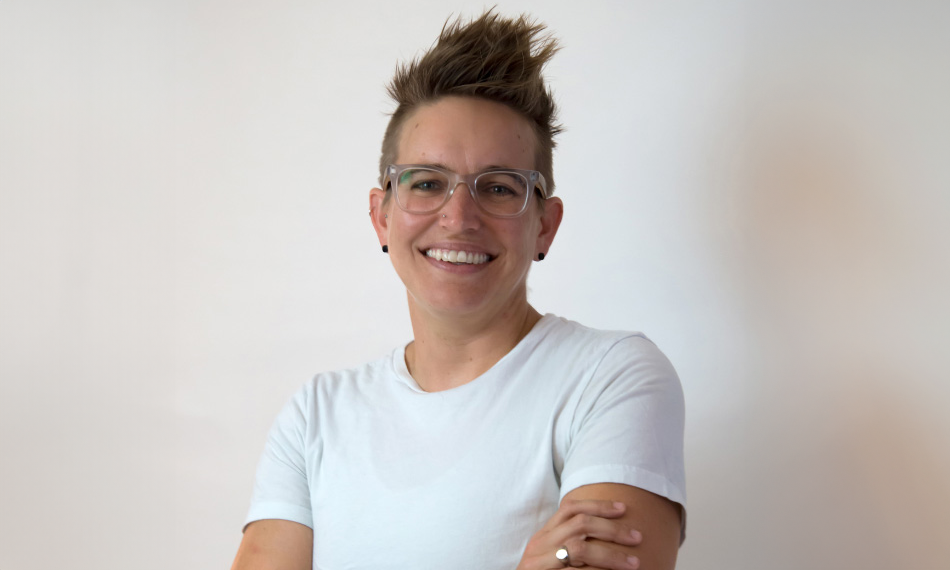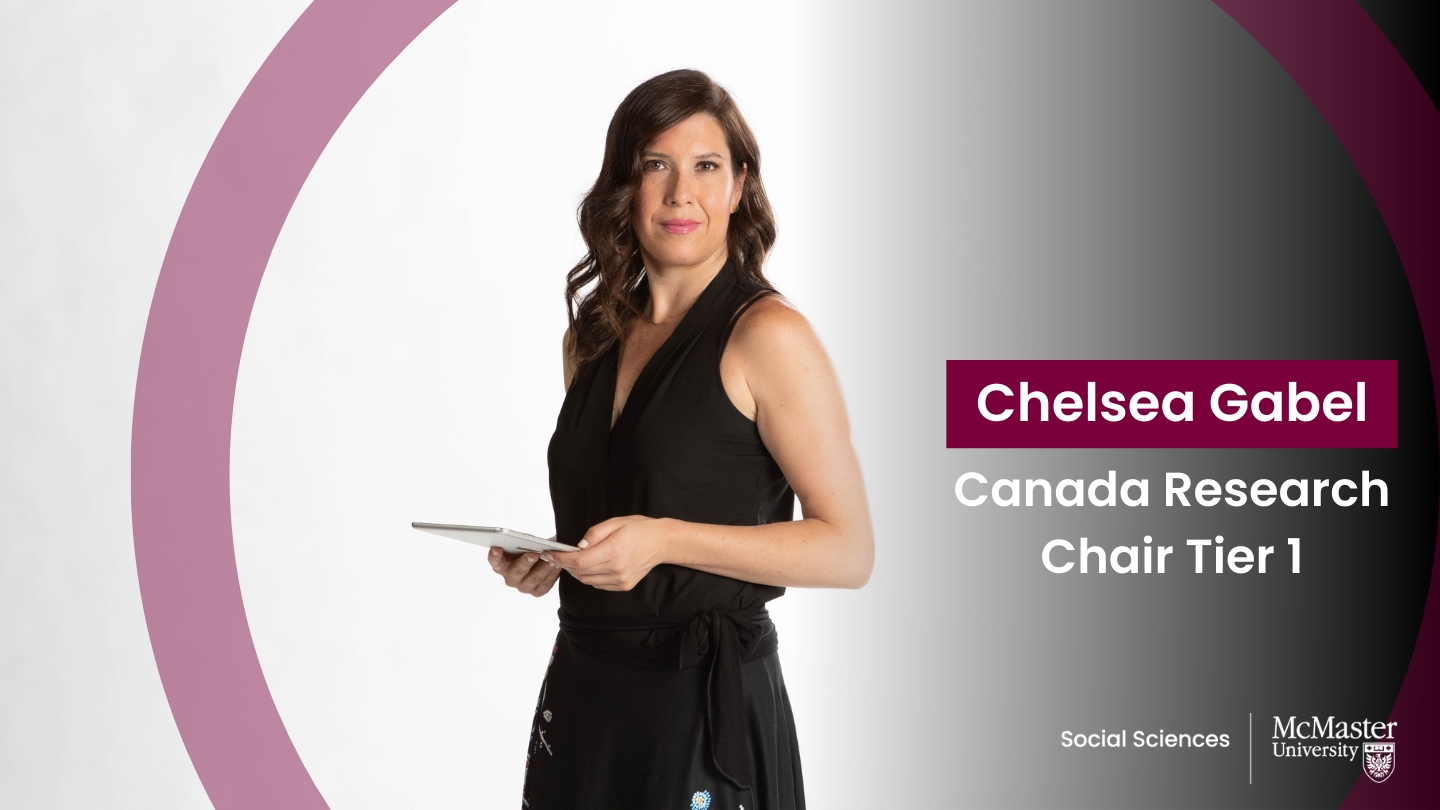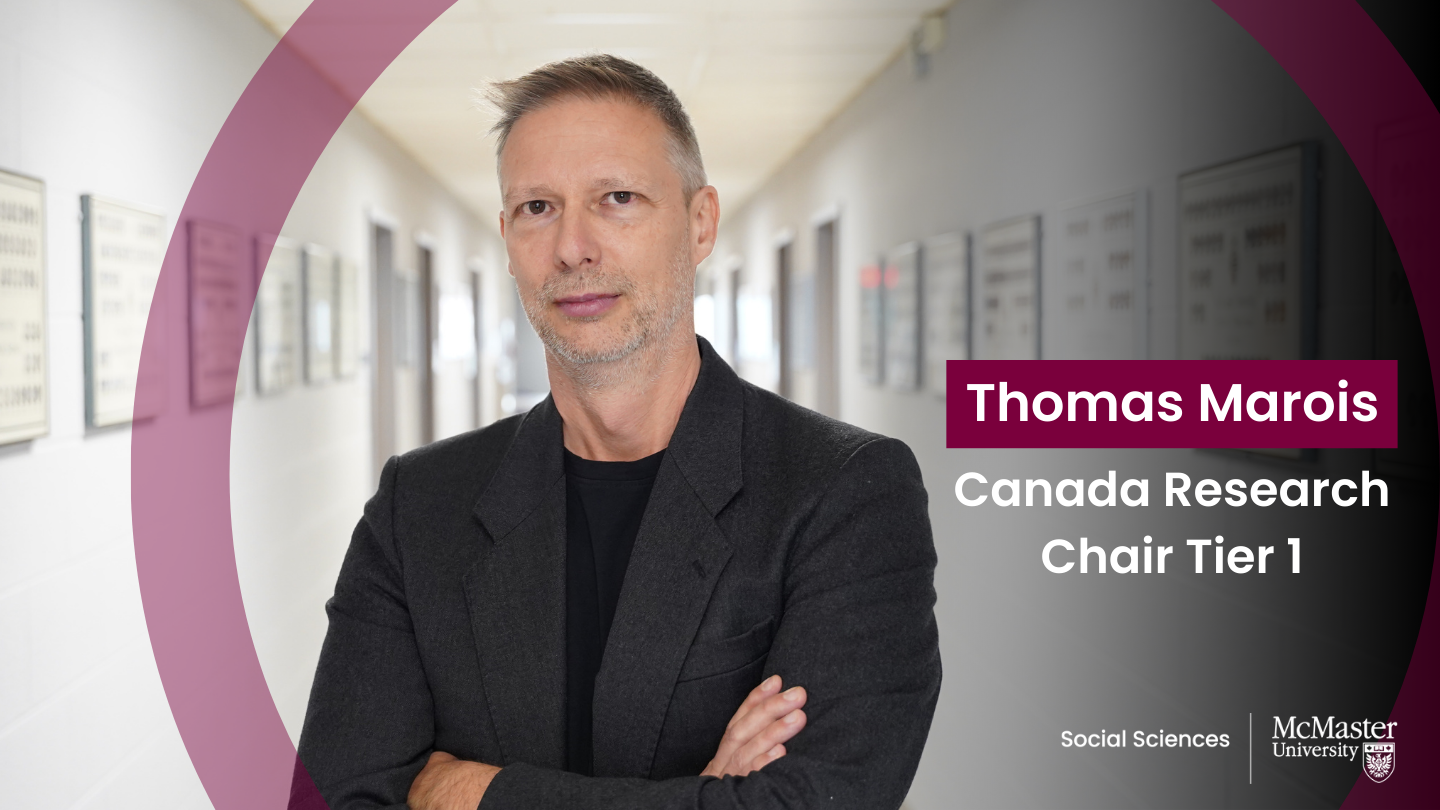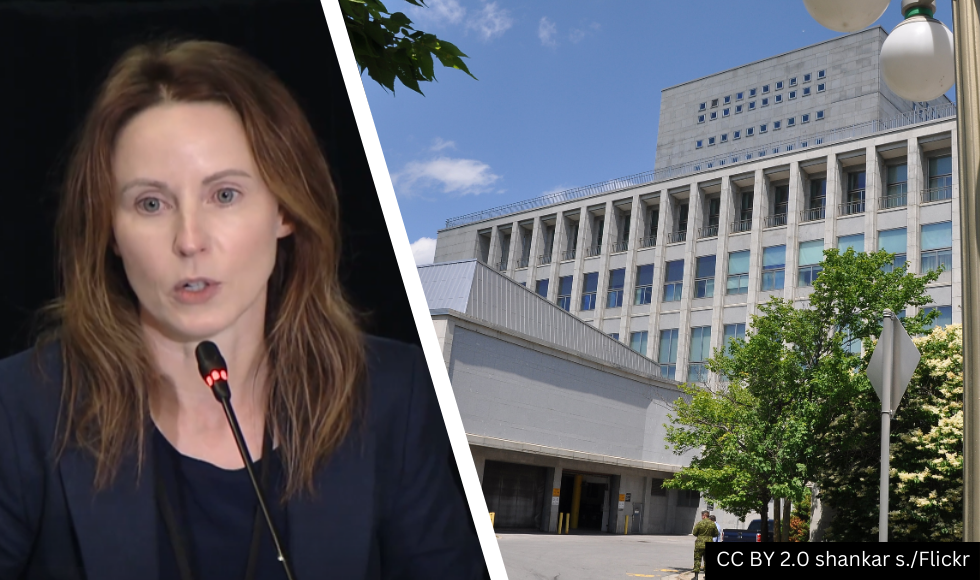Cal Biruk: Winner of the 2024 MSU Teaching Award

Cal Biruk, associate professor of anthropology, received the 2024 McMaster Student Union Teaching Award for the Faculty of Social Sciences. We chatted with Cal about their work, their approach to working with students, and what the award means to them.
What do you think are some of the best ways to engage students?
I do my best to get to know my students and learn about what inspires them and what they care about, even in larger classes. I try to meet students where they are and offer them diverse ways to interact with the course material that enable them to bring themselves (their passions, strengths, political commitments, vulnerabilities, and identities) into the classroom and learning space. I also aim to build a sense of community in my classes, to cultivate opportunities for transformation through learning from others (not just the professor) and about others, including what makes each of us tick, where we come from, and where we want to go. I work very hard to show that things we do in the classroom are not just academic exercises or ivory-tower navel gazing; rather, I try to help students understand how ‘theory’ (say, specialized words, concepts, or ideas) can provide us the tools for more precisely describing and meaningfully addressing pressing social problems. I love to give creative assignments that foreground that knowledge production is not just writing a paper or conducting an experiment but can take many shapes. Overall, I try to trouble the idea that the university is a stuffy place full of old white men and to make space for those of us at McMaster who don’t fit that mold. I also aim to use humor to make the classroom more welcoming, but I leave it to my students to tell you if I’m funny or not.
How would you like your students to remember you?
I would hope my students remember me as kind and humble and, also, as demanding but supportive. I hope that my classes kindle some kind of ‘spark’ for my students, a sense of excitement or inspiration that transforms them or sends their thinking or even life trajectory in a new direction. I want students who take a class with me to walk away, at minimum, with a deeper appreciation of their individual gifts and capacities and the confidence that they belong here and have something to contribute to our community and world. Finally, I hope students remember me as someone who is willing to speak up against injustice. Sometimes students in my classes make a new friend in my class, and that makes me happy, too, because those friends will always remember how they met!
What does this award mean to you?
I was so honored to win this award. It means so much to me that my students thought me worthy of it! I came to McMaster in 2020 from a liberal arts college in the States where I taught very small classes and was thrown immediately into the Zoom world of teaching to black boxes. The chance to meet and get to know my students in person the past few semesters has been an absolute delight and rekindled my passion for teaching. Teaching is a craft that one continually works on—especially when you are an introvert like me!—so this award makes me feel valued and motivates me to keep improving my pedagogical skills. I also want to recognize all the fantastic teachers here at McMaster (a special shoutout to the best teacher I know, my partner, Prof. Lyndsey Beutin); we all work so hard, and so many of us deserve such an award!
What’s a project you’re working on that’s inspiring you?
Another thing some of my students may remember about me (to return to an earlier question) is that I am an avid birder. One exciting thing I’m working on right now is a book, titled Birding, and forthcoming with Duke University Press, that is meant to appeal to audiences beyond academia. I am co-authoring it with my best friend and American Studies scholar Greta LaFleur; we have known each other since college, and this is a fun next step in our friendship. The book takes our shared love of birding as an entry point for exploring how the practice serves as a lens on to historical and present-day politics. We aim to map out some of the more complex corners of the practice of birdwatching, from its association with whiteness and colonialism to the at-times ill-fitting overlap between public spaces used for anonymous sex (cruising) and those spaces frequented by bird populations and birders. The practice of birding is, of course, always about both birds and people—environments and the legal, social, and political structures that regulate them. The book also includes reflections on how birding has helped me to learn more about the histories and politics of my new home (Hamilton and the place now known as Canada). The book is written in a different, more playful style than my academic publications (and will include some ‘queer’ bird drawings by yours truly!) and I’ve enjoyed experimenting with a new genre.
Departmental NewsRelated News
News Listing

Associate Professor Chelsea Gabel named Tier 1 Canada Research Chair
Awards, Departmental News
November 14, 2024

Political Science Professor Thomas Marois named Tier 1 Canada Research Chair
Awards, Departmental News
November 14, 2024

Political Science associate professor Andrea Lawlor testifies at Canadian Commission on Foreign Interference
Departmental News
November 12, 2024
